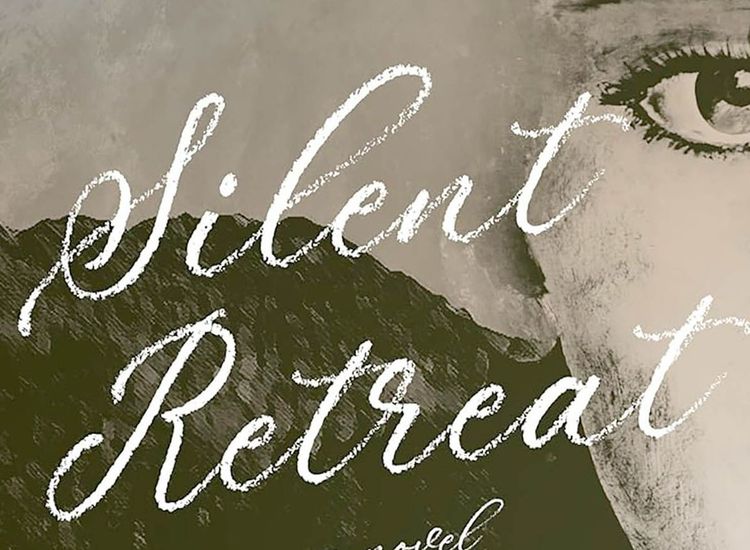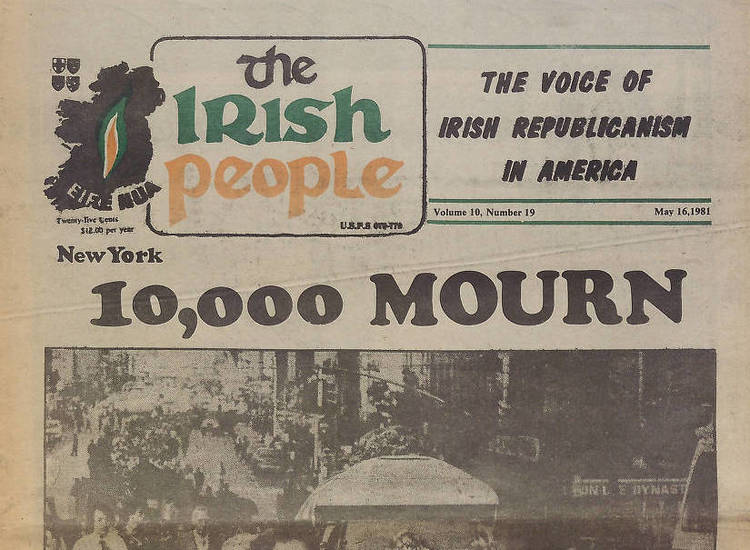The honesty and integrity feels evident throughout Lankum's latest, "The Livelong Day."
Traditional Music / By Daniel Neely
Lankum is a band I’ve long held a deep appreciation for. In late 2014, I learned about their album “Cold Old Fire” (back when they were Lynched, a name taken from band members Ian and Daragh Lynch) and in it found a release full of street ballads both traditional and new, that immediately struck me – their harder style was superior, their taste compelling, and their songwriting incisive. In 2017, after the name change, the group released “Between the Earth and Sky,” a follow up that enlarged and expanded their sound, while at the same time remaining faithful to the things that drew me to their music in the first place.
This Friday, Lankum will release “The Livelong Day,” an album that builds on the band’s continued upward trajectory. It includes eight songs – the shortest being nearly five minutes, the longest just over ten – that are epic in nature and expansive in scope. I’ve been listening to it for the past week, and am delighted to report that the whole thing is brilliant. Like their other albums, it’s rooted in a strong sense of tradition, but the loud, brooding, and ultimately beautiful direction the band is known for demonstrates that Irish music is very much a living thing and that within it, anything is possible.
https://youtu.be/5rukIHD7rNY
I recently spoke to Lankum member Radie Peat about “The Livelong Day” and she was kind enough to share some of her thoughts about its conception and how it relates to their other work. “It’s a natural continuation of the elements we introduced on our second album,” she explained, “though, we wanted it to be heavier, fuller. Similar in approach as the other records in some ways, but different since our tastes have gone in other directions.”
In advance of the album’s release, the band put out videos for a pair of singles, “The Wild Rover” and “The Young People.” The former related to the well-loved traditional pub song and the latter a Lankum original, the pair taken together kind of get at what “The Livelong Day” is about as a whole. “The Wild Rover” is a doleful track with a tone and a set of lyrics that sharply contrast against the version more commonly known. The band has paired the lyrics with music that feels haunting and lonely, and which unfolds most bracingly, increasing in volume as the track wears on. You’ve not heard acoustic instruments sound this brutal.
“The Young People,” on the other hand, is a Daragh Lynch original that deals with suicide as a social issue. Paradoxically upbeat in outlook, it’s almost a sing along that develops into something more anthemic as the track wears on. It opens with an arresting lyrical image of someone who has hanged himself. The words will challenge many listeners, especially those who have a personal association with someone who has taken their own life. But, as Peat pointed out “the song’s message is not a sad one, rather one about appreciating people, especially your friends, and showing them when you can. We simply don’t know what will happen in life.” This is an embrace of positive mental health (and in this respect, its kindred with the kind of subject matter Blindboy of the Rubberbandits often deals with in his podcast), and with that in mind the song’s message becomes very powerful, indeed.
https://youtu.be/JxKx-BBWX8Q
An important element of the album’s overall “sound,” Peat stressed, was the input of John “Spud” Murphy, the sound engineer the group’s worked with for quite some time now. “We knew we wanted him involved in this album from start. He’s so good at getting things to sound the way we want. When we’re in the studio, we bring everything to the table, nothing’s off limits, and end up going with the material that has good bones to it. But Spud helps us makes the most out of everything. He’s great at developing things like texture and depth in the sound, we just love it.”
Armed with this knowledge, it’s easy to hear Murphy’s influence everywhere. Take “Katie Cruel,” for example, an old Appalachian song learned from Karen Dalton’s 1971 album “In My Own Time.” Dalton’s version, with high, lonesome banjo accompaniment, is austere and brutally honest. Peat’s vocal delivery echoes the severity of Dalton’s, but what the group (in collaboration with Murphy) has done with the arrangement, laying bowed string over free reed, takes the sentiment somewhere completely different. If Dalton was singing with small town despair, Peat’s pain is a response to an unforgiving cityscape.
Contrast this to “Hunting the Wren,” a new song “written as part of a songwriting challenge between Ian [Lynch] and Lisa O’Neill” about the Wrens of the Curragh, a community of women who had “put themselves beyond the pale of respectable society” in 19th century Kildare. The challenge resulted in O’Neill’s “Violet Gibson,” a stirring song delivered with stark guitar accompaniment that appeared on her own album “Heard a Long Gone Song.” Lankum took a different approach with their treatment of Ian’s song, nesting Peat’s voice in a thickly meditative wall of sound. The effect is captivating. The same can be said for “Bear Creek,” an instrumental track featuring a couple of American old-time tunes. Peat and fiddler Cormac Dermody take the lead, and the treatment they give the tunes is far from what you’d hear in old-time circles. However, with Murphy’s help they’ve found a way to channel (as Peat put it) the “trance-yness” of old time playing in an arrangement that once again crates a layered sense of depth. It’s great stuff.
As our conversation neared its end, Peat reflected on the unbroken tradition of Irish music and Lankum’s relationship to it, saying something I thought thoughtful and profound. “The Irish tradition’s so full and rich,” she explained, “and while our music might not immediately match people’s perception of how Irish folk or traditional music ‘should’ sound, what we do comes from a place of deep appreciation. I’ve been playing trad music my whole life and I’m not a person who says that the tradition needs shaking up. I love playing in sessions and listening, say, to a lone fiddler in a pub. But I suppose when you’re in a musical project like a band, you’re putting together a piece of art. There’s no point to us trying to sound like like someone else, which may be jarring to some. Although you might be influenced by elements of people, we try to make music that’s interesting to us. It has to feel honest and have integrity, especially when you’re dealing with the traditional songs and tunes.”
That honesty and integrity certainly feels evident throughout “The Livelong Day.” This is an outstanding album and a perfect complement to the band’s past two efforts, and I certainly expect it will have broad appeal, especially outside of traditional circles. Lankum’s music speaks very directly to the issues that frame the modern world, but it does it under the creative influence of the Irish tradition. It’s just brilliant and it will move people in ways they might never expect. Definitely an album – and a band – to check out. To learn more, visit Lankum’s website here.









